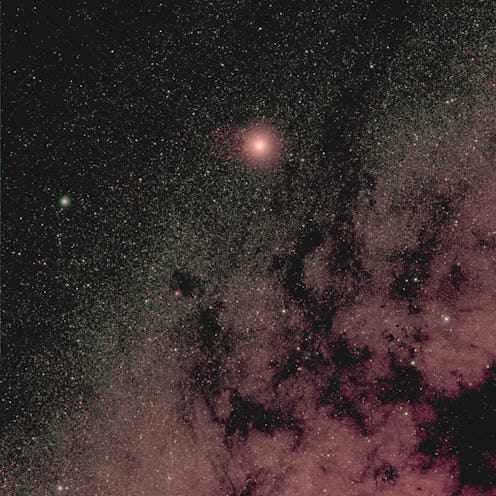News
What The Mars Opposition Even Means
A major astronomical event is happening this week that you won't want to miss, so make sure you're ready to go stargazing for the Mars opposition. Although Mars is always visible in the night sky, it will be especially bright on Sunday because its location in relation to the Earth. What is the Mars opposition? It's when the sun and Mars are on opposite sides of the Earth.
The term "Mars opposition" dates back to the days when scientists still held an Earth-centric view of the solar system. The prevailing view at the time meant that people believed the sun and Mars were positioned at opposite sides of the universe, hence the name Mars opposition. The event occurs about once every two years, but because of Mars' slightly ovular orbit around the sun, the planet will actually be closer to the Earth than it has been in 10 years, and therefore the brightest that it has been since then.
"The cool thing is, now that we understand that the Earth is a planet and that we're all going around the sun together, we know that it means that this is the closest Mars ever gets to us," said NASA scientist Michelle Thaller. "And that means it's the best time to look at Mars from Earth. ... Mars is the largest we ever see." Mars won't be really be that much bigger in the sky than usual, but it will be much brighter, making it great for viewing.
The Hubble Telescope took advantage of the usually small distance by taking some great new photos, released earlier this week by NASA. The pictures showed an extra clear view of Mars' surface, and allowed scientists to observe storm clouds, an inactive volcano, and an 1,100 mile-wide basin that was formed 3.5 billion years ago by an asteroid strike. You won't be able to see any of these features unfortunately, but make sure to check out the stunning pictures online.
The best part of the Mars opposition is that you won't need any special materials to be able to see it. Of course, you'll want to check your local weather to make sure that your view won't be obstructed by clouds, but if you've got clear skies in your area, you should be able to bask in Mars' extra bright light. The planet will rise at 8:12 p.m. ET on Sunday night, so any time after that should be optimal viewing. Happy stargazing!
